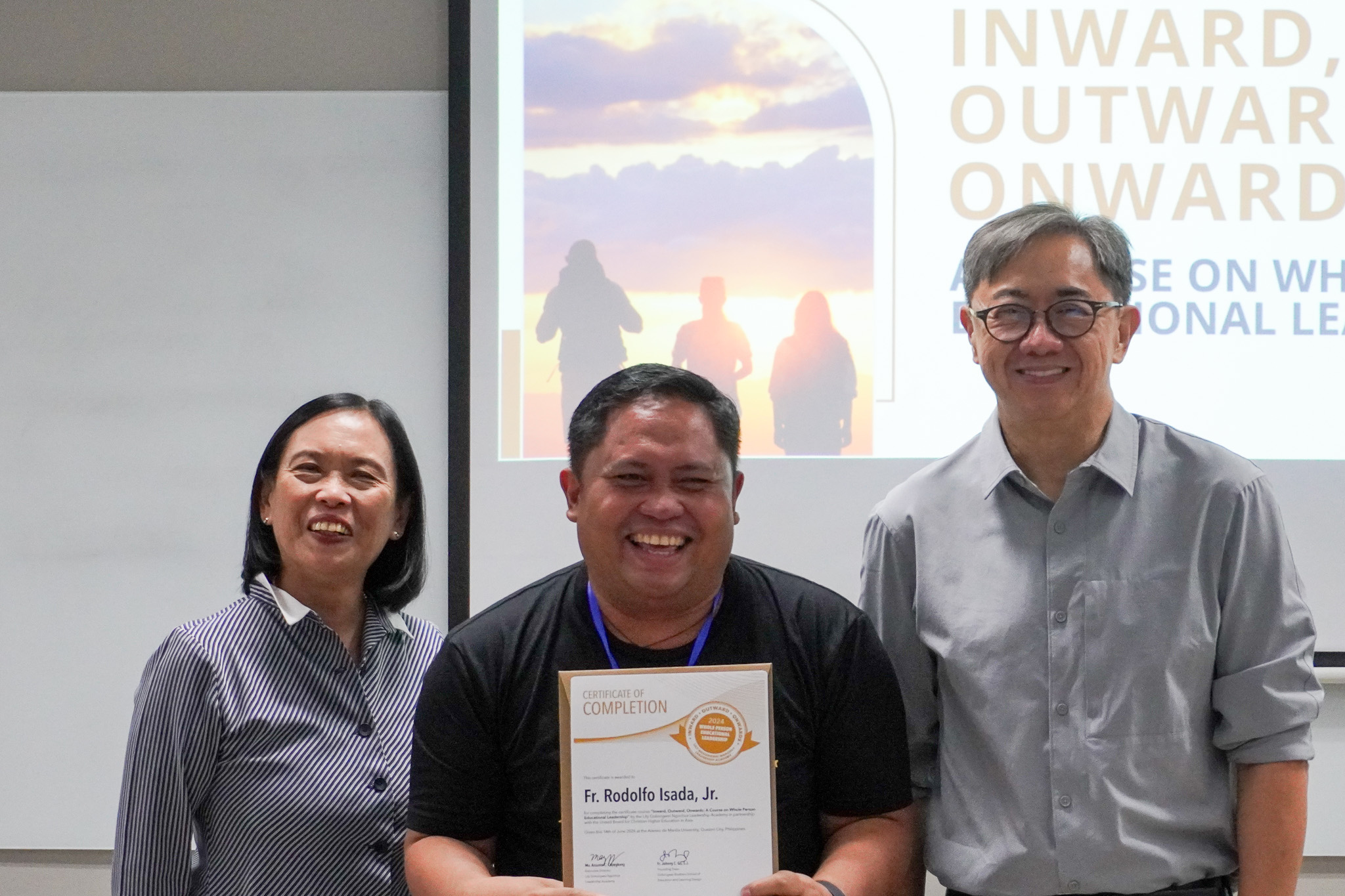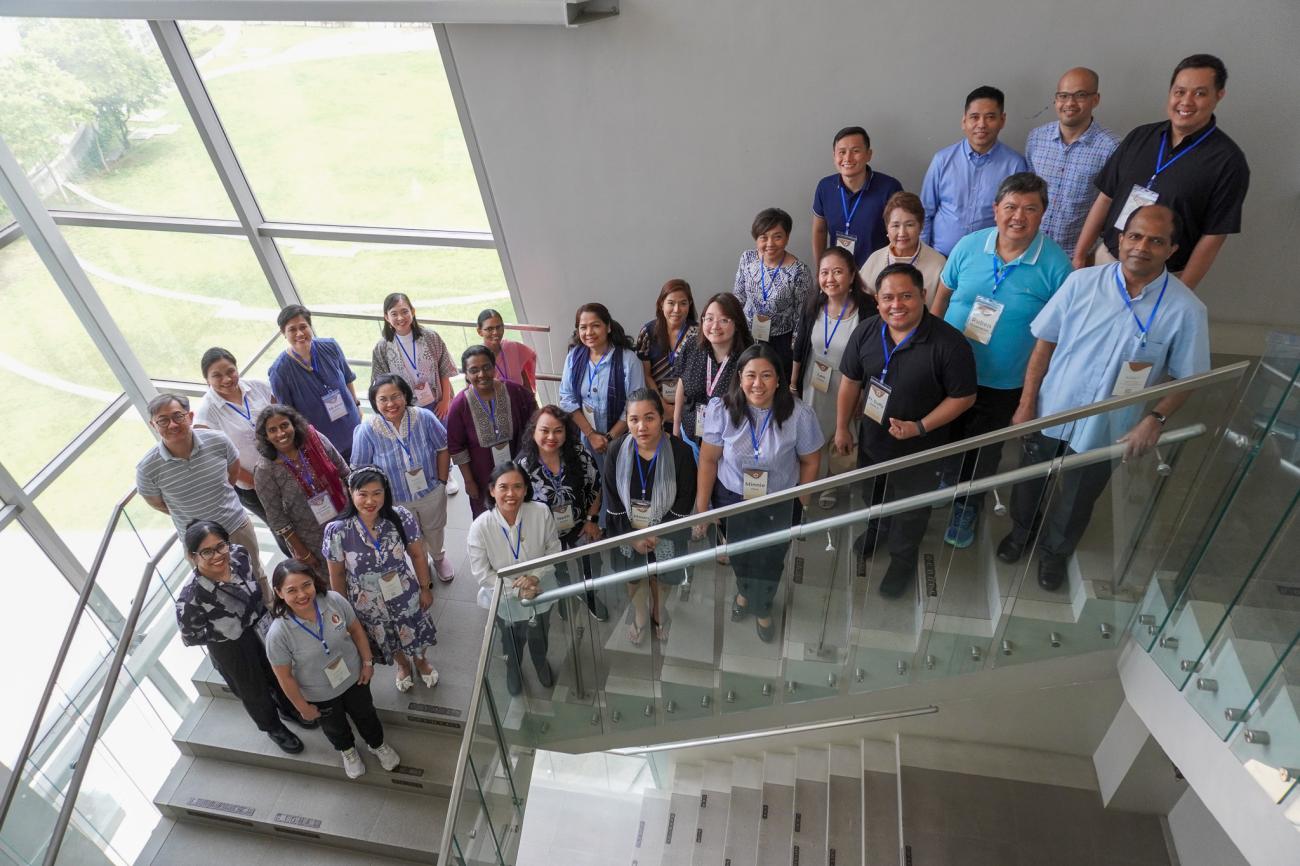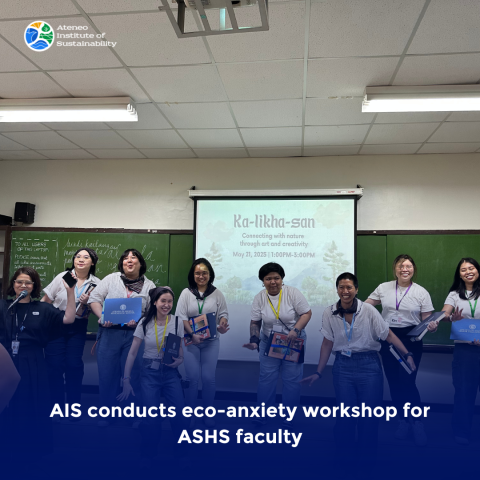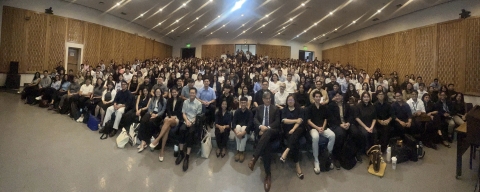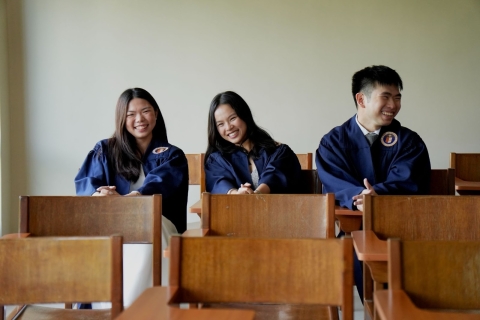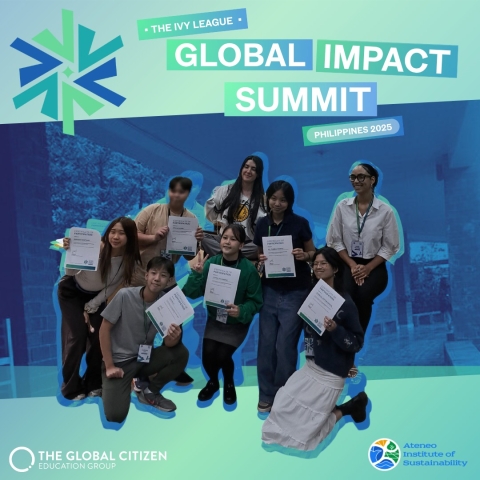The Lily’s Whole Person Educational Leadership course culminates in a three-day leadership retreat
25 Jun 2024
From 28 February to 14 June 2024, educational leaders from the Philippines and Asia participated in Inward, Outward, Onwards: A Course on Whole Person Educational Leadership (WPEL) organized by the Lily Gokongwei Ngochua Leadership Academy (The Lily). This certificate course aimed to deepen the person of the leader, transform schools toward sustainability, and push boundaries of education through creativity and innovation.
The online sessions began with Reflective, Listening, Discerning, and Missioning Leadership handled by Fr Johnny C Go SJ, Dean of the Gokongwei Brothers School of Education and Learning Design, and Dr Ma Assunta C Cuyegkeng, Executive Director of The Lily. The other online sessions featured experts in their respective fields, namely, Dr Kendra Gotangco Gonzales for Systems Thinking, Ms Abigail Marie T Favis for Integral Ecology, and Mr Galvin Radley L Ngo for Adaptive Design for Learning and Educational Technologies, Dr Anne Lan K Candelaria for Quality, Dr Regina M Hechanova Alampay for Institutional Culture, and Dr Antonette Palma Angeles for International Partnerships.
The course culminated in a 3-day leadership retreat held from 2 to 14 June 2024 at the JJ Atencio Lighthouse for New Learning in Areté.
Fr Johnny and Dr Cuyegkeng facilitated the review of the modules and reflection on how they could craft their own WPEL Roadmap for their respective institutions.
The participants were joined by their mentors, Dr Emily Ann I Lombos, Dr Marie Joy Salita, Ms Lillian S Vergara, and Dr Cuyegkeng, who facilitated their respective leadership circles throughout the course and the retreat. The leadership circles served as a way for the educational leaders to share insights with their peers and to converse with leaders from different contexts.
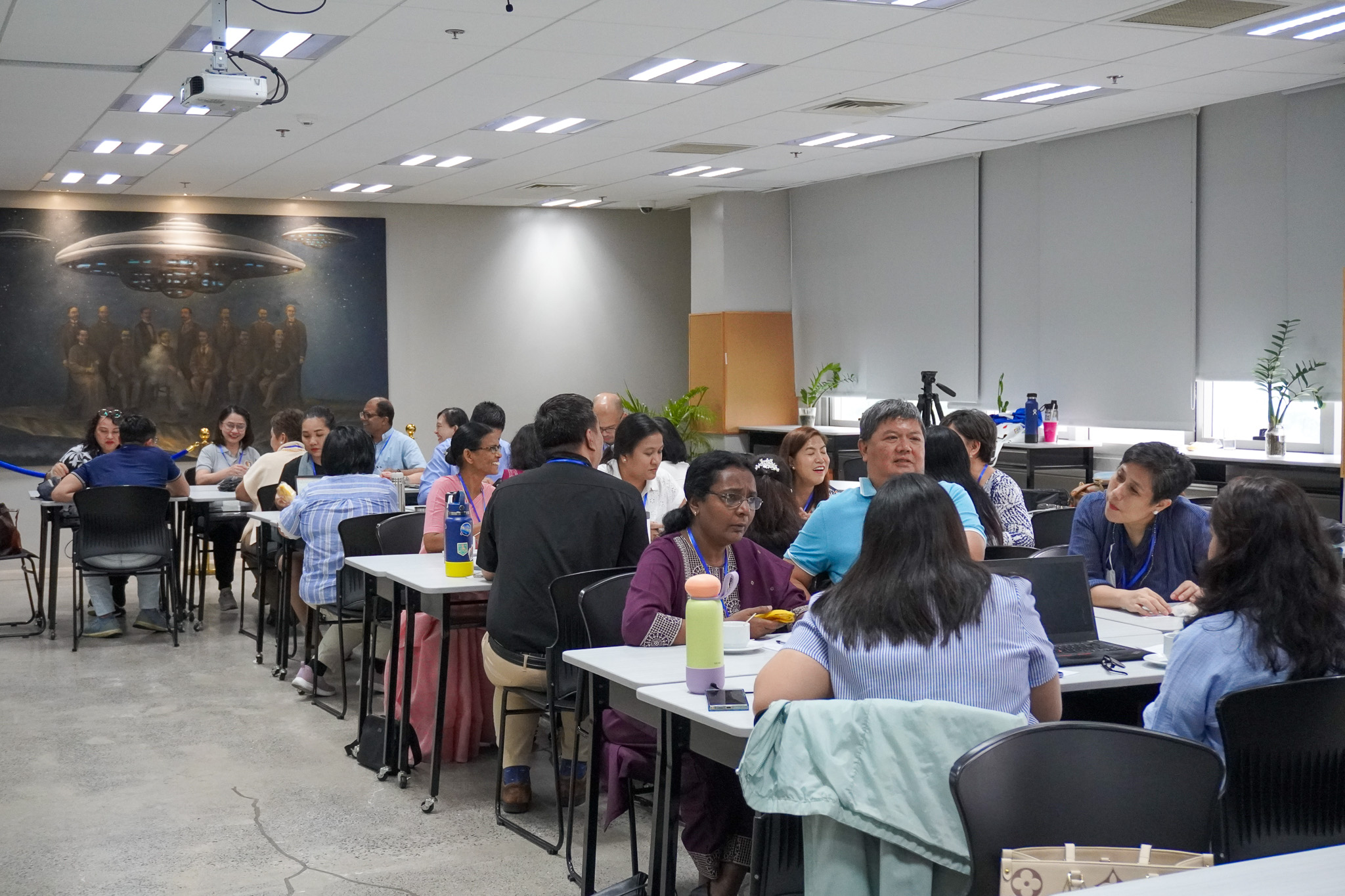
The highlight of the retreat is the capstone project where the participants crafted and improved their WPEL roadmaps based on what they learned throughout the course, the context of their respective institutions, and from feedback from their peers.
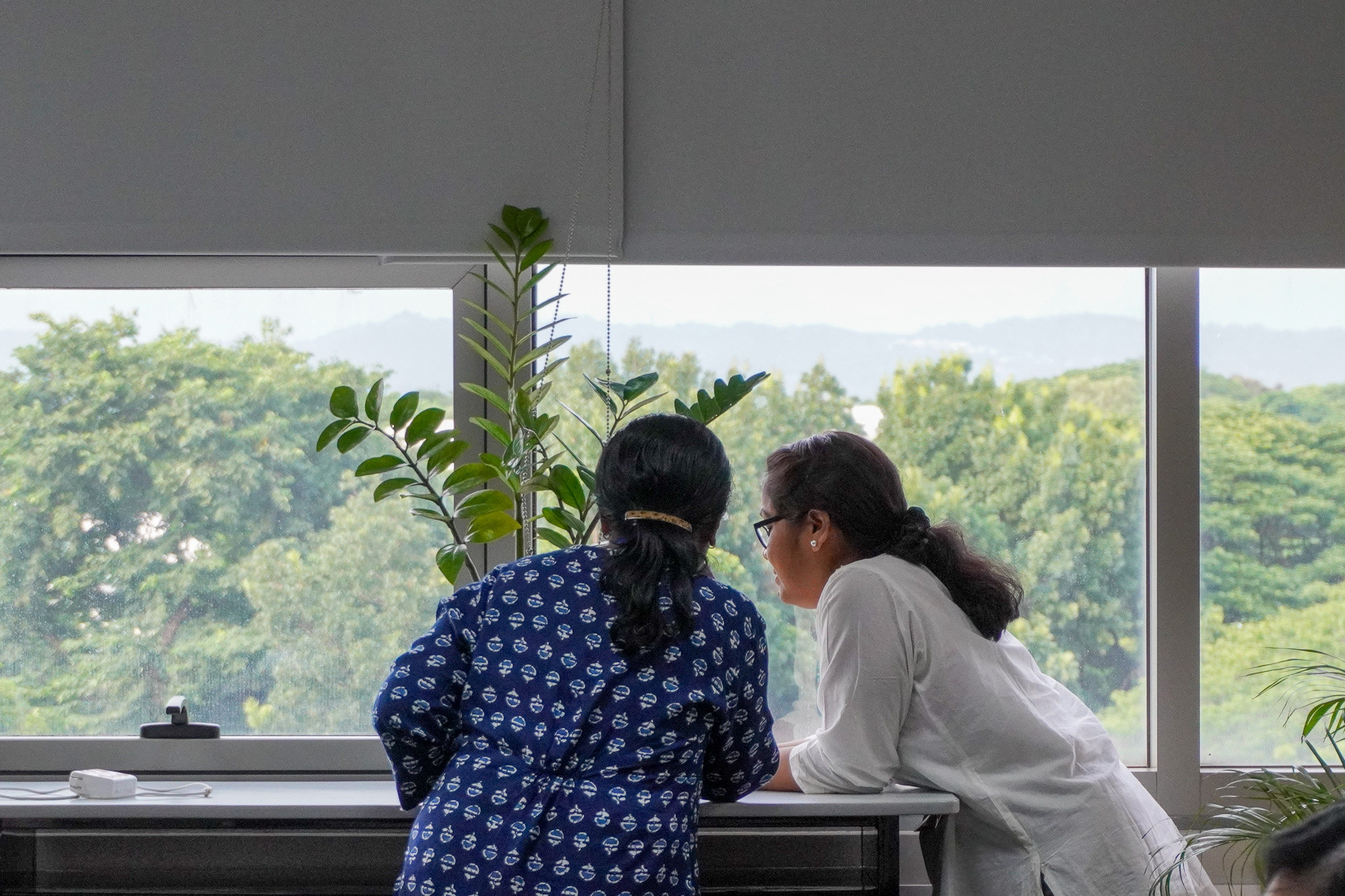
In their presentations, many of the leaders emphasized the need for more environmentally-aware programs in their schools, as well as the need to adopt a more adaptive mindset within their schools to keep up with the current socio-cultural norms and changes. These changes included the use of Generative AI in classrooms and homework, Skill Diversity in students, and Ecological Conversion or a sustainability mindset.
In her presentation, Henny Putri Saking Wijaya of Petra Christian University in Indonesia emphasized that “We have a tendency to apply a traditional approach, but like many said, we need to adapt to the latest approach and technology. We need more flexibility.”
Tapu Chowdhury of Asian University for Women in Bangladesh hopes for a more Sustainable Development Goal-oriented approach to help her students and administration become more environmentally-conscious when making decisions. Similarly, Sweetlyn Moses from Women's Christian College expressed her concerns about the increasing number of natural disasters occurring in Chennai, India. “Disasters affect everyone. So we hope to create collaborations between the humanities and the sciences to address these,” she explained.
The program ended with the educational leaders receiving their certificates for completing the course and looking forward to new beginnings in their respective higher education institutions.
